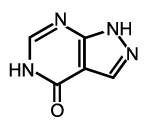Acute uric acid nephropathy
(Redirected from Uric acid nephropathy)
Editor-In-Chief: Prab R Tumpati, MD
Obesity, Sleep & Internal medicine
Founder, WikiMD Wellnesspedia &
W8MD medical weight loss NYC and sleep center NYC
| Acute uric acid nephropathy | |
|---|---|

| |
| Synonyms | |
| Pronounce | N/A |
| Specialty | N/A |
| Symptoms | Oliguria, anuria, nausea, vomiting, edema, hypertension |
| Complications | Acute kidney injury, chronic kidney disease |
| Onset | Sudden |
| Duration | |
| Types | N/A |
| Causes | Tumor lysis syndrome, high uric acid levels |
| Risks | Chemotherapy, hematologic malignancies |
| Diagnosis | Blood test, urinalysis, renal ultrasound |
| Differential diagnosis | Acute tubular necrosis, chronic kidney disease |
| Prevention | N/A |
| Treatment | Hydration, allopurinol, rasburicase, dialysis |
| Medication | Allopurinol, rasburicase |
| Prognosis | Variable, depending on severity and treatment |
| Frequency | Rare |
| Deaths | |
Acute uric acid nephropathy is a medical condition characterized by the rapid deterioration of kidney function due to the accumulation of uric acid in the renal tubules. This condition is often associated with tumor lysis syndrome, a complication that can occur after the treatment of certain cancers.
Pathophysiology[edit | edit source]
The pathophysiology of acute uric acid nephropathy involves the precipitation of uric acid crystals in the renal tubules. Uric acid is a byproduct of the breakdown of purines, which are found in many foods and are also released during the rapid turnover of cells, such as in leukemia or lymphoma. When the concentration of uric acid in the blood becomes excessively high, it can crystallize and obstruct the renal tubules, leading to acute kidney injury.
Clinical presentation[edit | edit source]
Patients with acute uric acid nephropathy typically present with symptoms of acute kidney injury, which may include decreased urine output, elevated serum creatinine, and electrolyte imbalances. The condition is often precipitated by the initiation of chemotherapy in patients with high tumor burdens, leading to the rapid release of intracellular contents, including uric acid.
Diagnosis[edit | edit source]
The diagnosis of acute uric acid nephropathy is based on clinical presentation, laboratory findings, and imaging studies. Laboratory tests may reveal hyperuricemia, elevated serum creatinine, and metabolic acidosis. Imaging studies, such as an ultrasound of the kidneys, may show signs of renal obstruction or swelling.
Treatment[edit | edit source]
The primary goal of treatment is to reduce serum uric acid levels and alleviate renal obstruction. This can be achieved through the use of medications such as allopurinol or rasburicase, which help to lower uric acid levels. In addition, aggressive hydration and alkalinization of the urine may be employed to prevent further crystal formation. In severe cases, dialysis may be necessary to support kidney function.
Prevention[edit | edit source]
Preventive measures are crucial in patients at high risk for acute uric acid nephropathy, particularly those undergoing chemotherapy for malignancies with high cell turnover. Prophylactic administration of allopurinol and adequate hydration before the initiation of chemotherapy can significantly reduce the risk of developing this condition.
Prognosis[edit | edit source]
The prognosis of acute uric acid nephropathy depends on the promptness of diagnosis and treatment. With early intervention, kidney function can often be preserved, and the risk of long-term complications minimized. However, delayed treatment may lead to irreversible kidney damage.
See also[edit | edit source]
Search WikiMD
Ad.Tired of being Overweight? Try W8MD's NYC physician weight loss.
Semaglutide (Ozempic / Wegovy and Tirzepatide (Mounjaro / Zepbound) available. Call 718 946 5500.
Advertise on WikiMD
|
WikiMD's Wellness Encyclopedia |
| Let Food Be Thy Medicine Medicine Thy Food - Hippocrates |
Translate this page: - East Asian
中文,
日本,
한국어,
South Asian
हिन्दी,
தமிழ்,
తెలుగు,
Urdu,
ಕನ್ನಡ,
Southeast Asian
Indonesian,
Vietnamese,
Thai,
မြန်မာဘာသာ,
বাংলা
European
español,
Deutsch,
français,
Greek,
português do Brasil,
polski,
română,
русский,
Nederlands,
norsk,
svenska,
suomi,
Italian
Middle Eastern & African
عربى,
Turkish,
Persian,
Hebrew,
Afrikaans,
isiZulu,
Kiswahili,
Other
Bulgarian,
Hungarian,
Czech,
Swedish,
മലയാളം,
मराठी,
ਪੰਜਾਬੀ,
ગુજરાતી,
Portuguese,
Ukrainian
Medical Disclaimer: WikiMD is not a substitute for professional medical advice. The information on WikiMD is provided as an information resource only, may be incorrect, outdated or misleading, and is not to be used or relied on for any diagnostic or treatment purposes. Please consult your health care provider before making any healthcare decisions or for guidance about a specific medical condition. WikiMD expressly disclaims responsibility, and shall have no liability, for any damages, loss, injury, or liability whatsoever suffered as a result of your reliance on the information contained in this site. By visiting this site you agree to the foregoing terms and conditions, which may from time to time be changed or supplemented by WikiMD. If you do not agree to the foregoing terms and conditions, you should not enter or use this site. See full disclaimer.
Credits:Most images are courtesy of Wikimedia commons, and templates, categories Wikipedia, licensed under CC BY SA or similar.
Contributors: Prab R. Tumpati, MD



